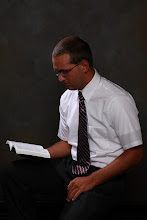
The Tombs of the Kings are an early necropolis in Paphos dating from 300 BC. The burial niches were looted of all artifacts long ago, but a powerful sense of stillness and mystery remains.

The name of the site is misleading—there's no evidence of any royalty buried here. Rather, the site was the final resting place of about 100 Ptolemaic aristocrats who lived and died in Paphos beginning in the 3rd century BC.
Early antiquarians dubbed the site the "Tombs of the Kings" due to the impressiveness of the tombs, and the name has stuck.

The catacombs were later used by early Christians, and one of the tombs was turned into a chapel. Beyond the colonnades, passages lead to rooms with niches (loculi) for individual corpses. Bodies were buried with costly grave goods, including jewelry and cosmetic boxes.


As was common in the classical world, on the anniversaries of death loved ones would hold a ceremonial meal (nekrodhipno) at the tomb, with the leftovers deposited near the body.


This is a view of the ruins.

This is the view of the Mediterranean Sea from the ruins.













